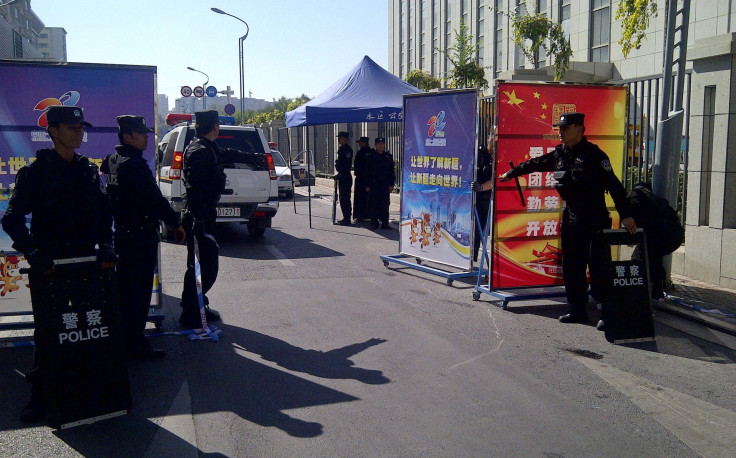China’s Human Rights Record Deteriorating As Government Adheres To ‘Authoritarian Model:' Report

China's human rights record has deteriorated in key areas over the past year as the Chinese government continued to emphasize authoritarian control at the expense of human rights and the rule of law, according to a report released Thursday. The report also accused the Chinese president of being an autocrat with a thirst for power.
The annual report by the Congressional-Executive Commission on China, or CECC, an independent agency of the U.S. government that monitors human rights and legal developments in China, said that the Chinese Communist Party has tightened restrictions on human rights advocates, civil society, journalists, religious institutions and the Internet, resulting in growing limits on free speech and expression in the country.
“This year’s report shows that human rights, freedom of speech, and rule of law deteriorated in China, while China’s compliance with international trade rules remained poor,” Senator Sherrod Brown, chairman of the CECC, said in a statement. “On issue after issue, President Xi Jinping’s government showed more interest in consolidating power, gaming the system, and denying rights than being a responsible global power.”
The CECC report, which provides detailed analysis on 19 human rights and rule of law issues, said that Xi and his administration adhered “to the authoritarian model of his predecessors,” which “poses a serious challenge to U.S.-China relations and China's own development.”
According to CECC, the Chinese government has denied medical treatment to imprisoned human rights activists and targeted their family members and associates. The government is also accused of implementing “harsh security measures that failed to protect rights in ethnic minority regions” during incidents of violence in China in recent years.
“It has been another horrific year for human rights in China,” Chris Smith, CECC co-chair, said in the statement. “This report… shows clearly that women continue to face surveillance, shame, and violence, including forced abortions and sterilizations this year.”
Smith mentioned human rights activists, such as Gao Zhisheng and Liu Xiaobo, who remain in prison even as concerns about religious freedom in the country continue to grow. Smith also accused the Communist Party leadership of viewing peaceful religious activities of minority groups such as Christians, Falun Gong, Uighur Muslims and Tibetan Buddhists as “potential threats.”
In July, China detained Tibetan writer and human rights advocate Tsering Woeser, and her husband Wang Lixiong, a Chinese scholar of ethnic issues, at their Beijing home. Woeser maintains a website called Invisible Tibet, in which she posts articles and poems advocating freedom for Tibet. Her husband, Wang, has written several books on Tibet that have been critical of China.
In May, Chinese police reportedly arrested a group of dissidents in both Beijing and Guangzhou who were planning to observe the 25th anniversary of the Tiananmen Square massacre on June 4.
In its report, the CECC urged the U.S. government to encourage China to comply with international human rights standards and the development of the rule of law. The commission also provided some recommendations, including those related to revisions to the country's visa policy and freedom of the press.
“Improved compliance with international law and greater respect for human rights will foster goodwill, trust, and confidence between China and the United States,” the report said. “Providing citizens with more avenues for justice and greater freedoms will help China address corruption, labor unrest, ethnic tensions, and food safety.”
© Copyright IBTimes 2025. All rights reserved.





















